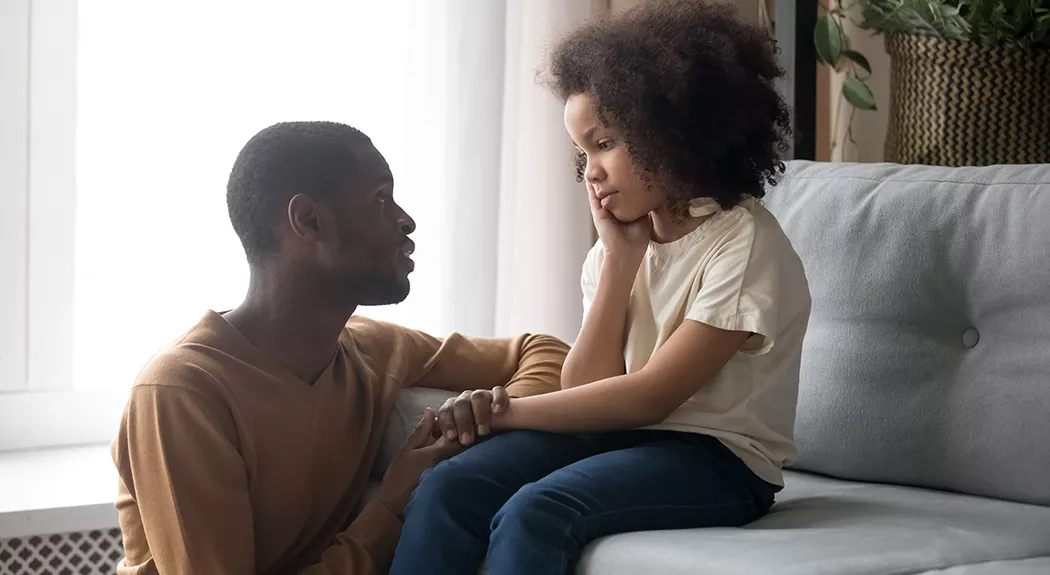by Luminis Health

It’s reasonable for your child to feel anxious, stressed or sad about what’s happening around them. Their daily routine is being interrupted and it might be difficult for your child to understand what they’re seeing online, on TV or hearing from those around them.
Times like this call for having open, supportive discussions that can help them understand, digest and cope.
-
- Ask open-ended questions and listen carefully. Start by letting them know you’re willing to talk about the issue and find out what’s on their mind. Allow your child to talk freely in a safe, non-judgmental environment. Remember, don’t underestimate their concerns or worries. Acknowledge their feelings and let them know it’s normal to feel scared. Show that you’re listening by giving them your full attention. Remind them that they can talk to you any time they need to.
- Tell them the truth in a way they can understand. Share with your child information that is truthful and appropriate for their age. Let your child know that some information online isn’t accurate and some stories are only based on rumors. If there are questions to which you don’t know the answer, try researching the answer together from reliable sources, such as the Centers for Disease Control and Prevention and the World Health Organization (WHO).
- Show them how they can best protect themselves and their friends. One of the best ways to keep your child safe is by encouraging them to wash their hands regularly. Try using this WHO guide to clean hands or dance while lathering upto make learning fun.
- Remain calm and give them reassurance. Children will react to what you say and how you say it, whether you’re having a conversation directly with them or others. When a child sees certain images on TV or online, it can sometimes feel like the crisis is all around us at all times. This can make it hard for your child to distinguish between images on screen and their own reality. You can help your child cope with the stress by carving out time for them to play and relax. Keep regular routines and adhere to schedules as much as possible. Let them know that there are many people working hard to keep everyone safe.
- Help them look for the good. Let your child know there are scientists, doctors, health workers and many others who are working tirelessly to keep everyone safe.
- Let them know you’re there for them. Don’t leave your child in a state of worry. Try to watch their body language by measuring their tone of voice and watching their breathing. Remind your child that you’re there for them and available whenever they have concerns.
 Jennifer Evans is a mental health clinician with Anne Arundel Medical Center’s (AAMC) Psychiatric Day Hospital.
Jennifer Evans is a mental health clinician with Anne Arundel Medical Center’s (AAMC) Psychiatric Day Hospital. 


